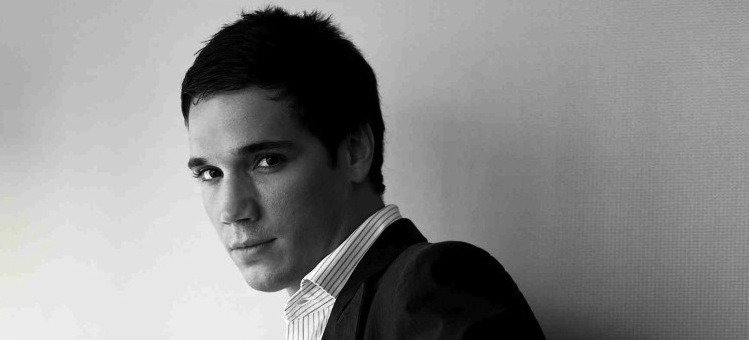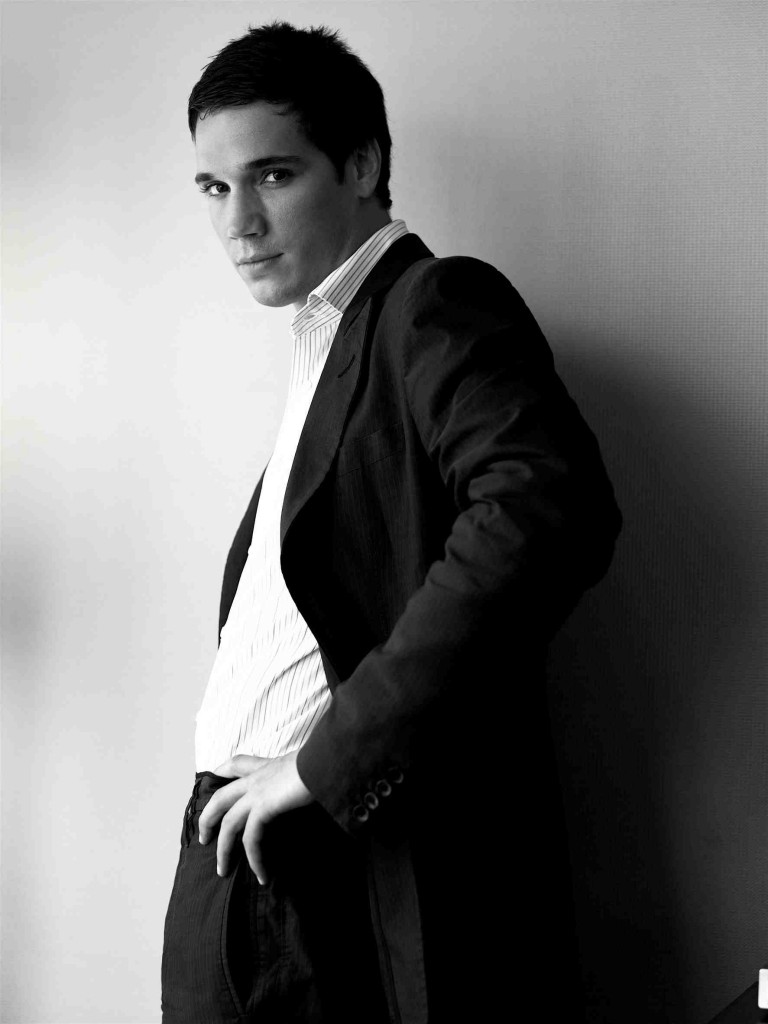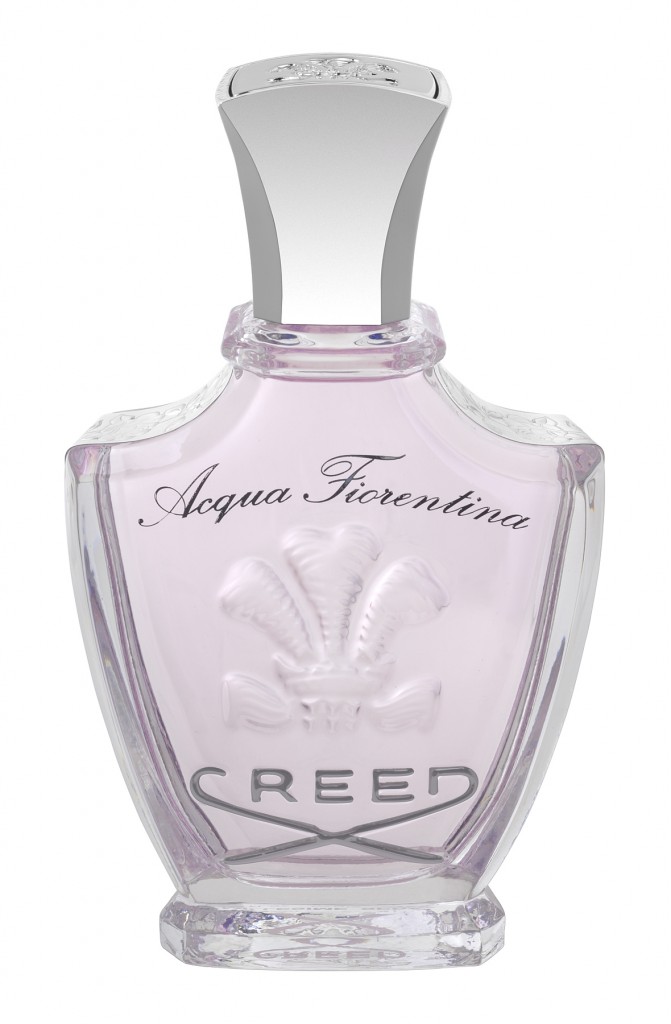Kevin Allwood TALKS WITH ERWIN CREED —
KA — The lovers of CREED perfume have gotten younger and younger over the years. What do you think is the reason for this?
EC — CREED is historical, yet very contemporary. I think anyone would say Acqua Fiorentina is a contemporary fragrance. It is light and versatile, with an appeal across generations. I can attribute this to the skill of my father, the master perfumer, who sets the creative direction. As an artist, he is in touch with the 249-year legacy of CREED, of course, but also in touch with the moment. It is not an easy thing to achieve, creatively.
KA —The CREED brand remains synonymous with the best in the world. What makes you so focused on this level of quality, in a world where this is the first thing to cut?
EC — For us, there is no other way than the long, painstaking way of creation, like a painter or sculptor. Beyond that, some of the methods we use in making fragrances are exactly the same as they were in 1760 when the company was founded, for example, the way we macerate ingredients. Our hand methods require great physical labor and expenditure of time. Certainly, it could be done more quickly and less expensively if we used more chemicals, fewer natural ingredients and greater mechanization. But then it would not be CREED. It would be like everything else. My father and I still travel the world to select the best ingredients — the best bergamot, the best iris, the best roses. We meet with the farmers and growers and make the selection ourselves. Then it all comes back to our workshop in Fontainebleau, where my father, I and a team of just 35 people do all of the physical work of creating fragrance from blooms, buds, fruits, spices and woods — creation, bottling and sending to our clients, all by hand. Of course, the creative concept is my father’s. I assist him more and more. This is our way. We have a family method, seven generations strong, and it works for us. It will not change.
KA — Scent is such a personal thing, yet you and your father have succeeded in translating a series of scents that become personal to many unique individuals. How is this achieved?
EC — A given scent may smell different on each person, depending on PH levels in the skin, the wearer’s geographical location, for example, in warmer or colder climates and so on. Each person brings a unique chemistry to a fragrance. What is much more interesting is that an individual’s choice of fragrance provides a unique insight into his or her personality. For example, you can go to the CREED counter at Holt Renfrew, Neiman Marcus, Harrod’s, Printemps or Lane Crawford and smell the CREED fragrances worn by — and in some cases made specifically for — historical figures such as Eva Peron, who wore CREED Ambre Cannelle, or Amber Cinnamon. Appreciating the fragrance such a person held dear tells you a bit more about them and adds a dimension to what you’ve read about them in books.
KA — When we work with music, we have to listen to music at low volumes to be able to keep the sense of hearing always sharp. How is this achieved in an art in which you need to use the full sense of smell?
EC — The sense of smell is an extraordinary one. The human nose can detect innumerable individual notes of fragrance. This is part of the joy of composition. When my father and I are creating a new fragrance, a process that can takes years, we wear only the fragrance we are creating. We wear it — and live in it — day by day, changing it, adding to it, lessening it, refining it, building it, day by day, moving toward a creative ideal. My father is the ultimate judge of when a fragrance is complete, and that is a difficult judgment to make, as with any artist. It is a subjective question. So we may ask the impression of a friend or other family member. But it is the master creator’s nose that is the essential one.
KA — There is a theory that we smell not with our nose alone, but with our very soul — the essence of who we are. What is your take on this theory?
EC — I appreciate that theory because a fragrance, let’s say violets, may be very evocative for you, immediately calling to mind a childhood memory. Virtually everyone has had this experience, the amazing connection between fragrance and memory. Some memories are certainly held not just in the mind, but also in the heart and soul, for example, memories of love. So I appreciate what you are saying. We cannot predict, when creating a fragrance, what emotions or memories it may provoke in you. We have an idea, based on our experience and our own reaction to what we’ve created. But like any art, fragrance is subjective. The important question is what a fragrance means to you, and we hope that what we are creating will stir the heart, the mind and even the soul.
KA — The perfume of flowers (as in incense burning) is considered to be the bridge between celestial and terrestrial. Do you consider the art of making perfume to be a bridge between the physical and the spiritual?
EC — It’s an interesting question. Certainly, the ancient Egyptians considered fragrance a bridge between the physical and spiritual, and they included fragrance in the rituals of the pharaohs. As you’ve pointed out, incense is viewed this way in many places — as a fragrant smoke to lift a spirit or plea to those above. The CREED fragrance Angelique Encens, or Angelic Incense, incorporates this idea. It’s one of our rarest creations, quite hard to find — because it is quite difficult for us to make and cannot be hand made on a constant basis! The fragrance was originally created by CREED in 1933 for the bishop of Paris. The fragrance is meant to evoke the interior of the cathedral of Notre Dame: wood, stone, incense, the warmth of flame. It is evocative and powerful as a fragrance. Certainly this fragrance was created with the concept of the spiritual foremost in mind. But as I say, we do not make this fragrance often, and it will soon no longer be available in North America at all, only in Paris.
KA — What triggers you to create a new fragrance?
EC — The same impulse that triggers the sculptor to pick up his tools, the painter his brush or the architect his pad. For us, it is the same. The creative impulse seeks its own expression. It occurs at its own time. It cannot be predicted, and it cannot be controlled. It arrives. One must be ready when it does. Ready in terms of technical preparation to bring the creative to fruition. Making fragrance is a creative endeavor — with all of the exhilaration and frustration that it entails. Before my father joined the family company, he painted more than 100 canvases. I too have painted. At CREED, for 249 years, we move toward a notion of perfection, creatively speaking, fragrance by fragrance, pursuing a vision of the true, the good and the beautiful. That is the best way I can express it.
KA — What is your definition of the term “best in the world”?
EC — The best in the world is that which is born of the purest intention and is pursued with the greatest vigor — intellectually and creatively — sparing nothing.
KA — What single event has created the most profound life change for you personally?
EC — Surviving a crash during an automobile road race in France in 2008. The car was destroyed, but I was unharmed.
KA — What music are you listening to presently?
EC — This is a great question. You know, people who live for fragrance tend also to be very interested in cuisine, art and music. I am. On my iPod you will find a bit of everything, truly. I travel a great deal, continent to continent. Part of what remains with me when I leave a country, whether it’s India, Brazil or America, is their music, whether it’s music of celebration or romance. Recently, I was very impressed with the American band, Chester French, who coincidentally are very appreciative of CREED fragrances. But I listen to everything.
KA — Where in the world do you find the best flowers for your fragrances?
EC — My father and I might find the best and most fragrant oil from roses in Bulgaria. We may find the best irises in Egypt, the best violets in Italy. But fragrance also requires woods, fruits, spices and other materials. So our travels take us everywhere, from the royal sandalwood forests of Mysore, India, where harvesting wood is expensive — and properly so because it is done in an environmentally sound way — to Calabria for lemons to Ceylon for lotus flowers. In many cases, my family has been in business with growers for generations, so we get the best.
KA — Who is Erwin CREED?
EC — Your friend.
ACQUA FIORENTINA — NEW WOMEN’S FRAGRANCE FROM CREED
Acqua Fiorentina is hand made from the flowers and fruits from the orchards of Florence. Greengage plum is the masterpiece’s top note. Renaissance roses, pink carnations, vivid bergamot and Calabrian lemon are the master’s choice for the thriving heart. Warm base notes of Virginia cedar and Indian sandalwood are the sculpted wood frame for this work of art.
Available as of September 1st 2009 in Neiman Marcus, Bergdorf Goodman and select Saks stores (US) Holt Renfrew across Canada and Ogilvy in Montreal, Printemps and Bon Marche in France, and Harrod’s in England.



